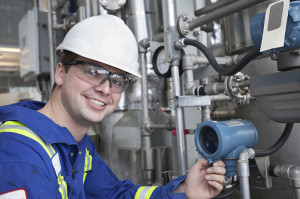WA Manufacturing Lobby Seeks Reform
January 16th, 2015Western Australia’s manufacturing sector could be shaken up as the state’s peak business lobby looks into boosting the international competitiveness through significant reforms. Some of the proposed changes include slashing the company tax rate to 25%, increasing R&D incentives and privatising electricity assets. Further, the Chamber of Commerce and Industry of Western Australia (CCIWA) is releasing a key report on Thursday, titled The Future of Manufacturing, following the decade of significant expansion in WA that benefitted manufacturers. The report entails its recommendation to also lift the payroll tax threshold to $1.5 million and hand over Industrial relations powers to the Commonwealth to create a national system that would also require reform.
Over the past ten years, local manufacturers have grown on average 4.8% a year, compared to 0.4% a year nationally. Western Australia’s manufacturing output was only 0.1% less than its mining output for the same period, however as iron ore and oil prices are currently tumbling; many manufacturers connected to WA’s resource industry are feeling the heat.
Deidre Willmott, CCIWA’s CEO, said the WA government must act to deliver policies that will increase the sectors international competitiveness; “We can’t say they are ok simply because they grew during an extraordinary period of economic growth. We need to look toward the future and know that the fundamentals are right for these businesses to continue supplying and supporting both local and global markets”.
Perth-based company, MAK Water, competes in the water systems business against cheaper Chinese manufacturers. With custom designs and a faster delivery system, MAK Water maintains clients worldwide, however MD Andy Byk, says the company faces major cost pressures and wants reform to payroll tax and penalty rates. ‘We get stung with monstrous wage costs’, continued Byk. ‘We work very hard to remain competitive. We avoid penalty rates by subcontracting work rather than giving it to [full time] employees. Governments have not been focused on growing manufacturing. It has survived rather than being developed’.
The CCIWA report states, ‘Government’s should not ‘pick winners’ but create policy to encourage entrepreneurship. It will be a substantial shift in focus for industry policy, which has traditionally favoured firms with subsidies or support programs’.
Source: The Australian Financial Review
Categories
- ATO Guidance and Materials
- AusIndustry Guidance and Materials
- Case Law
- Federal Budget 2021
- Federal Budget 2022
- For Accountants
- General Information
- Government Policy and Treasury
- Industry Specific Issues
- Interpretative Decisions
- Legislation and Parliamentary Matters
- R&D Tax Credit
- R&D Tax Funding Strategies
- R&D Tax Loans
- Recent News
- Tax Determinations
Archives
- April 2024
- March 2024
- February 2024
- January 2024
- December 2023
- November 2023
- October 2023
- September 2023
- August 2023
- July 2023
- June 2023
- May 2023
- April 2023
- March 2023
- February 2023
- January 2023
- December 2022
- November 2022
- October 2022
- September 2022
- August 2022
- July 2022
- June 2022
- May 2022
- April 2022
- March 2022
- February 2022
- January 2022
- December 2021
- November 2021
- October 2021
- September 2021
- August 2021
- July 2021
- June 2021
- May 2021
- April 2021
- March 2021
- February 2021
- January 2021
- December 2020
- November 2020
- October 2020
- September 2020
- August 2020
- July 2020
- June 2020
- May 2020
- April 2020
- March 2020
- February 2020
- January 2020
- December 2019
- November 2019
- October 2019
- September 2019
- August 2019
- July 2019
- June 2019
- May 2019
- April 2019
- March 2019
- February 2019
- January 2019
- December 2018
- November 2018
- September 2018
- July 2018
- June 2018
- May 2018
- April 2018
- March 2018
- February 2018
- January 2018
- December 2017
- November 2017
- September 2017
- August 2017
- July 2017
- June 2017
- May 2017
- April 2017
- March 2017
- February 2017
- January 2017
- December 2016
- November 2016
- October 2016
- September 2016
- August 2016
- July 2016
- June 2016
- May 2016
- April 2016
- March 2016
- February 2016
- January 2016
- December 2015
- November 2015
- October 2015
- September 2015
- August 2015
- July 2015
- June 2015
- May 2015
- April 2015
- March 2015
- February 2015
- January 2015
- November 2014
- October 2014
- September 2014
- August 2014
- July 2014
- June 2014
- May 2014
- April 2014
- March 2014
- February 2014
- January 2014
- December 2013
- November 2013
- October 2013
- September 2013
- May 2013
- April 2013
- March 2013
- September 2012
- August 2012
- June 2012


 Free Call: 1300 009 390
Free Call: 1300 009 390






 News & Research
News & Research



